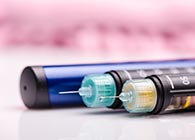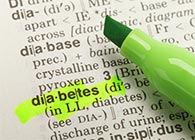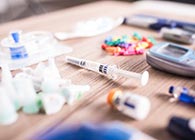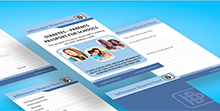Research – Stress
Stress
Stress and Diabetes
How the Body Handles Stress
Stress and Blood Glucose Levels
Personality, Stress and Blood Glucose Levels
What is Stress and How Does it Affect us?
Research – Stress
Research – Stress
Aggressive diabetes treatment can be stressful
Research carried out in the Netherlands [Diabetes Care, Oct 2006] has shown that when people are identified as having Type 2 diabetes as a result of screening, they usually experience little anxiety in the first years after the diagnosis. However, the research shows that early and intensive treatment appears to lead to higher anxiety and less ability to cope.
The article states that there is an ongoing debate on screening for Type 2 diabetes with one side emphasising the advantages of detecting diabetes at an early stage of the disease because early and intensive management may reduce diabetes-related illness and death. But opponents to this view say while the psychological consequences of early detection and treatment are unclear that this approach is not certain.
The researchers studied 196 patients diagnosed with diabetes 3 to 33 months previously who were receiving usual care or intensive treatment. The majority of patients reported little distress and low levels of perceived seriousness and vulnerability, and felt confident coping with the disease but those who received intensive treatment reported more distress and less self-confidence in the first year. The authors emphasised:
- the importance of taking variations between patients into account in the development and implementation of self care programmes for patients with a recent diagnosis of type 2 diabetes during a screening trial.
- that doctors should be more attuned to patients’ psychological needs when they first prescribe intensive treatments.
Should we ask similar questions about the treatment for Type 1 diabetes?
‘Intensive treatment’ means multi-daily doses of insulin [MDI] and ‘usual care’ usually means twice daily injections both aiming to achieve blood glucose levels as near normal as possible. It was recognised that ‘intensive treatment’ involved more daily injections, more daily blood glucose testing, better education and of course, a greater risk of more episodes of severe hypoglycaemia and weight increase. Importantly, when MDI was introduced it was recognised that this regime was not suitable for everyone, not everyone wanted or could manage this more complex regime.
But now we have an increasing use of insulin analogues and one pharmaceutical company has stated that in future they will only supply insulin analogues. The use of insulin analogues means that people with Type 1 diabetes, and many with Type 2, will HAVE to use a regime of at least 4 injections a day – intensive treatment. Yet the above research showed that people on intensive treatment reported more distress and less self-confidence! So the increasing use of insulin analogues could well increase number of people with low self-esteem, anxiety and stress. Even if doctors are attuned to patients’ psychological needs, the reduction in types of insulin reduces their options to help patients.
Yes, there are pre-mixed analogue insulins which may be OK given twice daily, but we all know that they remove flexibility of dose and injection timing. Twice daily injections of separate short- and longer-acting animal or human insulins can still be geared to suit the activities and meals and for some people are a much easier to manage blood sugars. Do we really want to be left with little choice of insulin and the resulting effect of complicated regimes that could increase stress and reduce the quality of life of some people?




































